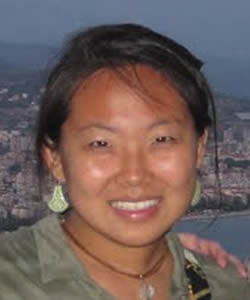As a part of our program at the McGhee Center for Eastern Mediterranean Studies here in Turkey, we are given the privilege of traveling to Syria for a fall study tour for a period of 10 days. This study tour aimed to give us a comparative understanding of the role in Islam between a dynamic Westernizing country with a self-proclaimed secular government and a relatively conservative country with a more rooted history of Islam. The differences are quite stark; conspicuously, gender relations are different and influences of Islam are evident in even the layout of the city. The influences of Islam in Syria are more prominent than what I have seen in Turkey, and I was surprised at how noticeable the differences in these two Muslim-dominated countries.
One of the first impressions that demonstrated the influence of Islam in Syrian society after we got off the bus in Aleppo was the attire of the women we saw walking through the streets. Aleppo is a major city of Syria, and as major cities go, has a diverse population. In Istanbul, a major city of Turkey, the attire women chose ranged from colorful headscarves to clothes one would find in the streets of Manhattan. Even in the more conservative neighborhoods, such as Sultanahmet, women dressed rather modestly and wore the controversial turbans, but I did not see many Turkish women who went further in covering themselves.
In Syria, I was taken aback by the extent to which women followed the Qur'anic call to dress modestly. As we got off the bus from our considerable bus trip, we walked through Aleppo, and many women wore completely black covered head to ankle, some with more fitted coat-like outfits and others with more flowing material. Also, for the first time, I saw women who covered their faces completely, even without openings for their eyes; some women even had their glasses over this black cloth that they could apparently look out through. Although the women dressed more modestly, the stores that we walked by in the suq, or market, had more suggestive stores than I came across in the Grand Bazaar in Istanbul. Also, in Syria men seemed to populate the public space much more, especially at night. The gender relations in Syria were more striking than what I had observed in my travels throughout Turkey in how the women generally dressed and the stronger presence of men in public spaces.
The layout of the cities in Syria gave characteristics that we did not really evidence traveling throughout Turkey. On the program, we have been able to visit the largest of Turkish cities, such as Istanbul and Ankara, little mountainside villages, and cities in between. Part of the reason we travel extensively is to supplement a course on the history of urban geographies in Turkey. In this class that studies how cities dating back from the Hellenistic period have evolved, and one of the trends we have studied is the idea of an “Islamic city”. Although discouraged by more modern scholars, this theory gives light to the reasoning why Aleppo and Damascus, as two examples of what an “Islamic city” would be, are established they way they are. The irregular and convoluted streets or private neighborhoods, and the proximity of structures like the mosque, market, and other public quarters, and the size of mosque complexes all relate to how Islam has influenced the city. The cities in Turkey are created differently. Even in Antakya, a city close to the Syrian border, the streets form a grid-like pattern, which differs significantly from the maze of many Syrian urban quarters. The term "“Islamic city"” may be problematic, but it is hard to deny that Islam has influenced cities like Damascus and Aleppo.
Syria and Turkey are countries that have been shaped distinctively by Islam, and although it may not be a completely fair comparison, because we spent 10 days in Syria compared to four months in Turkey, the observations made have nonetheless illustrated how Islam makes conspicuously separate marks in the two countries.

